This one’s dedicated to Damaged Book Worker and former and current SPD Staff. Love and strength to you all.
*Please note, the warehouse manager mentioned in this piece is not the current SPD warehouse manager
*The ED mentioned in this post is the current ED, not J.L.
This is my farewell letter not only to Small Press Distribution but to the literary world. Your power-holders have wiped their shoes on people like me for long enough, and as Taylor Swift sings in “My Tears Ricochet,” I guess I don’t “have it in myself to go with grace.” I’d rather have truth and justice any day of the week. So, Grief Tourists and Gossips and Gatekeepers and Enablers and Deniers, grab your popcorn, buckle your seatbelts, and don’t forget those masks because the smoke is going to get thick “from all my burning bridges” (Dorothy Parker, “Sanctuary”).
I moved to the Bay Area a decade ago to get my MFA, and even with a scholarship and student loans, I had to work full-time to survive. This meant, every week, a frantic dash from work to BART to bus to class to bus to BART to home. As a bookseller, I made a little over $9 an hour, and I lived in a bug-infested apartment building in Oakland (the landlord bathed the apartments in pesticides often with no apparent success).
My cancer chuckles sinisterly in the background.
I was quickly promoted, but even as a manager, I only made a few more dollars per hour and a couple dollars less than I had been making in my home state, where the cost of living is a fraction of what it is in the Bay Area. When my employer decided to eliminate my job position, I was given two options: be promoted to higher management or accept a small severance. I said I’d take the promotion if my wage would be what people in similar positions in the area were making–around $16 an hour. I was told the company couldn’t afford that in a *tsk *tsk sort of way, so I took the severance.
I started volunteering for SPD later that year. Volunteers worked mostly in the warehouse and were given slightly damaged books for their labor, but I was occasionally asked to do front-office work. Any job at SPD was my dream job, so when I was offered a paid warehouse assistant position, I eagerly accepted.
I quickly realized this world operated by different rules than the ones I was used to, and my co-workers seemed to come from much different backgrounds than I did. The ED commented on my cheap lunches more than once, as if what I ate was a choice rather than a necessity (several times I had to get my groceries from dollar stores). Unlike many of my co-workers, I could rarely afford to go out to lunch. The ED also commented more than once on my “Midwestern work ethic,” even though I’m not from the Midwest, as if my work ethic was a rarity at SPD, where I was always very aware of my blue-collar upbringing.
The work environment was much more informal than anything I’d experienced before, which was nice in some ways, but alarming in others. Very early in my employment, the ED sent me a friend request on Facebook. I was of the firm opinion that it’s a mistake to have your boss on your FB friend’s list, and I’m very careful about whom I accept friend requests from, but I didn’t think I could decline without coming across as anti-social and affecting my future at SPD.
I did well in the warehouse. While the warehouse manager spent hours at his computer working on his books, using me as a spell check, I managed the Amazon and Baker & Taylor processes and brought some order to the backstock. The ED told me at one point that he appreciated me because I made his warehouse manager–who was also his friend–look good. Ugh. My great talent, apparently, was being able to tolerate said warehouse manager, whom others found rude, abrasive, and worse. Because of the amount of managing I was doing in the warehouse, I was made the “Shipping Coordinator,” a position that didn’t exist before then.
I, not the warehouse manager, was the person who had to stay late if the UPS pickup was late, and it often was. On the day before holidays, when everyone else got to leave hours early, I often had to stay late. This was fine at first because I was just grateful to be working at SPD and making a wage that allowed me to afford a better, bug-free apartment. But after a while, working harder so that others could work much, much less weighed on me. One of the days I had to stay late I was so sick, I’d lost my voice and could barely be heard on the phone asking the UPS dispatcher for an ETA on a late truck, and I thought, of all days, why is this a day I’m the one who has to stay late?
After I became more comfortable at SPD and got to know my co-workers better, I complained about the conditions in the warehouse and the warehouse manager’s behavior on more than one occasion. The ED eventually told me the warehouse manager would never be fired. From what I could see, his behavior and complaints about his behavior from volunteers and other employees wasn’t even being documented, and he seemed immune from any kind of punishment or accountability.
(I heard much, much later that at one point he said something racist, and that he was finally put on probation and asked to complete a sensitivity training, which he apparently refused to do, so a workshop about workplace organizational structures that he attended with the ED and another staff member was allowed to count toward that requirement.)
The ED started pressuring me to move to the front office, even though I liked the work I was doing in the warehouse, and I didn’t want all the processes I’d created or improved to be set back by my absence. I wonder now if his attempts to promote me were his response to my complaints rather than a recognition of my hard (and excellent, by the way) work. I kept declining the promotion, but I felt like I’d only be able to say no so many times before doing so would sour things with the ED.
Finally, I said I’d take the Sales & Marketing Manager position on the condition that I would no longer be managing the Amazon process in the warehouse, which would be impossible from the front office and with my new job responsibilities. The ED assured me this condition would be met.
Unfortunately, what I suspected would happen, happened. The warehouse manager was reluctant to take over management of the Amazon process and refused to even learn how to do it himself. When I tried to train him and my replacement, he wandered off, and he and/or the ED wouldn’t take ownership of the process. I was put in a tough position–common at SPD–where assertion of my very reasonable boundaries meant another employee (my replacement, in this case) would not get the support or guidance they needed and deserved because the person who should have been providing that support and guidance refused to do so. The ED and warehouse manager often put other managers in the position of doing their work for them because the alternative was watching the negative impact of a lack of good management on staff.
And so, I continued to help with warehouse tasks while also trying to get the ED to make the warehouse manager do his job, since the ED was the direct supervisor of the warehouse manager. It took a lot of unpleasant conversations on my part for me to be allowed to do only the job I was promoted into and not my new job plus significant parts of the warehouse manager’s job.
Even though the culture and work environment was often rough and problematic, I enjoyed my work as Sales & Marketing Manager, cared deeply about SPD’s publishers and authors, and believed in SPD and its mission. I felt that it was a force of good in the literary world, or that I could do some good through it, naive as that seems to me now.
Two of the directors would frequently fight in front of staff, and the ED often said inappropriate things. Once, a publisher I admire applied for distribution, which I was very excited about, and I remember the ED saying–in reference to the publisher’s focus on spoken word events–that this wasn’t “our type” of work and “our kind” of writers. His possibly racist comments made me angry, and I felt the publisher deserved respect for their work–which I considered important–and their success.
Once, around the time of the 2016 election, during a pizza party in the SPD kitchen, the ED told staff that anyone without kids couldn’t understand the full horror of a Trump presidency. As a transgender person, this really bothered me. Another time, when I went into his office to ask a work-related question, the ED asked about my intention to vote for Jill Stein (he’d seen my posts on Facebook about attending a Jill Stein event in the Bay Area). During the course of that conversation–which felt more like an interrogation–he asked me to consider his kids when making a final decision who to vote for. Based on things the ED said, I sometimes felt like he resented me and other staff members for not having kids. Conversations with the ED were often uncomfortable, at least for me, but were just part of life at SPD.
It’s important to note here that employees must take any grievances to the ED first, as instructed by the Employee Handbook, and the ED is the one who initiates the involvement of the SPD Board, if he deems that necessary. Until Damaged Book Worker’s piece was published on Medium, staff members had no way of contacting the SPD Board if they didn’t feel comfortable taking a grievance to the ED. Another manager often brought up issues with the ED, but without his cooperation and consent, it was often impossible to get any resolutions. And by the ED’s own admission, he’s very defensive when his behavior or work is questioned.
Though I liked and got along with my co-workers, I still felt like a guest in this world. My size, the state I was from, my working-class parents and socioeconomic status growing up, the universities I went to, even the poets I read–all of these seemed to mark me as an outsider. The Bay Area literary scene is full of cliques, and these cliques overlap with and flow through SPD, and I never seemed to have the right key. This made me hesitant to offer any information about myself at work, and co-workers rarely asked about my life anyway, but it also made me feel like I couldn’t take my experiences to others.
But outside of work, living in the Bay Area, I found people who shared my sexual orientation and gender identity, and this gave me the confidence to finally come out to my family, post about this side of myself on Facebook, and start to socially transition.
The ED learned of my sexual orientation and gender identity from Facebook. Shortly after I posted about getting a genderfluid haircut, my boss invited me to what I thought was a work lunch (I even took a notebook and pen), and after we sat down at one of the outdoor tables at a nearby restaurant, he initiated a conversation about my gender identity and proceeded to ask me questions. His questions in no way seemed an attempt to discover how I wanted my social transition to happen at work, a conversation I should have been allowed to initiate myself when I was ready. Rather, he seemed to be trying to determine the veracity of my gender identity. I realized this interrogation was his intention for the lunch all along. At one point, I said, “You know, I’m still the same person,” and the look he gave me was one of skepticism.
This experience made my place at SPD feel more precarious and made me hesitant to accept lunch invites from other co-workers. When I did, I was wary of the person’s intent and nervous about what I would be asked and how my answers would affect my job and possibly my place in the Bay Area literary world. Were they just hoping to use me as a piece of gossip?
In the Bay Area literary world, gossip is a currency. Whoever has the best gossip or access to the source of the best gossip has the most social power. My unwillingness to gossip was just another thing that marked me as an outsider.
I remember riding back to the East Bay with two of the directors (one the ED) after our annual fundraiser one year, and the two of them were criticizing people in the community. One of the directors said at one point, “She’s stupid, poor thing.” I shrank into my seat and wondered what they said about me and poets I cared about behind my back.
When one of the directors was about to retire, the ED talked to me about the possibility of my becoming a director. He said part of the job would be serving as an office manager and that a mother would be the best person for that role. My lack of children seemed to be a mark against me. The ED didn’t seem to think there was anything inappropriate or sexist about this.
Before my promotion could take effect, a family crisis happened, and I had to move back to my hometown. Because most of my work was done on a computer anyway, I asked SPD if I could continue in a remote position, even if that meant a significant pay cut. The directors agreed, something I was immensely grateful for at the time, but this put me in an uncomfortable position when it came to health insurance.
Shortly after moving back, I started having problems with my sinuses, and it was hard to get my Kaiser health insurance to cover my trips to the quick care. On some paperwork from SPD, I noticed my address was still listed as California, so I contacted two of the directors and asked that it be updated so I would be charged the appropriate state taxes.
I also wondered if my health insurance would be affected since I no longer live in the Kaiser coverage area. I couldn’t get a clear answer from Kaiser, so I asked the ED to look into this for me. He agreed that my Kaiser insurance wouldn’t work in my state, so I’d have to choose an ACA plan. The premiums on even the cheapest ACA plans in my area were too high (around $400), and the deductibles on the cheapest plans were around $8,500. Yikes. When I told the ED this, he suggested SPD could pay a part of the premium by adding a monthly stipend to my paycheck.
The problem with the ED’s suggestion was that the stipend would count toward my income (which would cause my student loan payment to increase) and be taxed (not so for employees with the Kaiser coverage). So I would still end up paying a significant amount more for my health insurance than my co-workers, but I’d also be paying higher student loan payments (but not enough to pay anything toward the principal).
Because I was grateful that SPD had allowed me a remote position, I didn’t feel comfortable making a big deal about the whole thing or suggesting that maybe SPD change their insurance carrier to one that has a wider reach so that I could continue to have employer-provided coverage. Because I didn’t feel like I could afford ACA coverage, at the ED’s request, I signed a form saying I didn’t want health insurance. I was in my mid-thirties and mostly healthy, or so I thought, and it was much cheaper to pay for the urgent care visits I might need out of pocket than to pay the expensive premiums (plus most of the cost of the urgent care visits) of the ACA plans available to me.
My cancer chuckles sinisterly in the background.
Oops.
In 2018, it was decided that the ED, the warehouse manager, and I would be the ones to go to AWP in Tampa. What a nightmare. I had a sinus infection that would end up lasting 7 months (caused by the cancer, but I didn’t know that yet), so I was exhausted. When I arrived at the hotel it was late but the ED hadn’t arrived yet, so the hotel required I put my credit card on my room. I didn’t have a big enough balance on my credit card for the pre-authorization, so this created a financial crisis for me.
This was also the trip where the ED outed me and asked invasive questions about my sexual orientation at a work dinner with a top SPD publisher. I already wrote about that experience here, so I won’t go over that again.
When VIDA published my essay, I was afraid I was going to lose my job, even though I didn’t name names. But though a handful of publishers reached out to me after the piece came out, including the publisher from the work dinner, SPD leadership acted as if nothing had happened. With how much gossip is a part of the Bay Area literary world, I was sure they had to have seen it or at least heard about it.
In fact, when I posted the essay to Facebook, the ED liked my post, and when I posted it to IG, the ED’s wife liked that post. Yet I never received an apology from the ED until after Damaged Book Worker’s piece was published. Only when I made it more clear on Facebook exactly who outed me did the ED send me an email apology in which he claimed to have not seen my essay before that point.
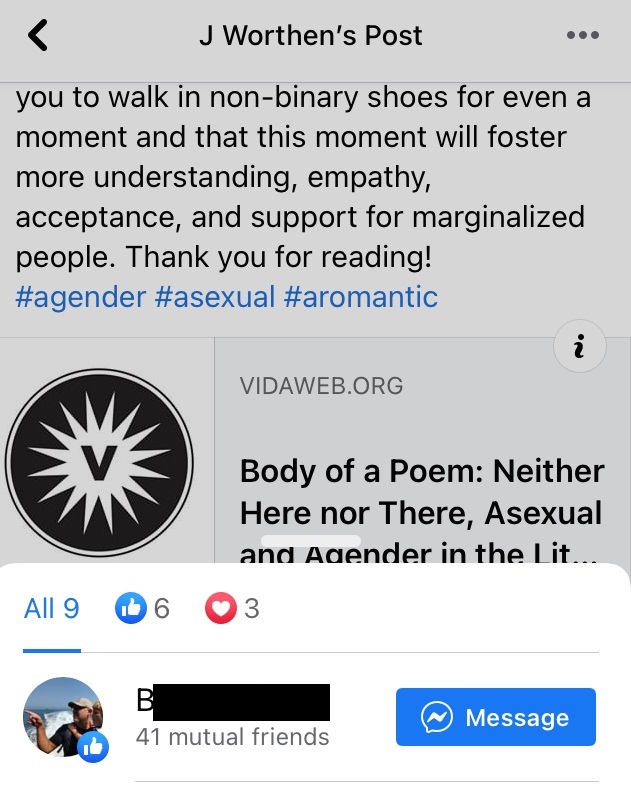

But, of course, he should have realized his behavior was super inappropriate in the moment. The publisher who attended the dinner certainly did. That work dinner made me realize I was not just an oddity to the ED. I seemed to be some sort of weird pet. Whenever it suited him, I felt like he’d trot me out on a leash: Look here at this odd thing I’ve collected. In one Slack message to me he used a possessive pronoun when referring to me:

This is top-level yuck.
The ED would also give me over-the-top praise in front of my co-workers, and this felt more like an isolation tactic than a recognition of my work, and it made me uncomfortable every time. No one likes the teacher’s pet, especially if they don’t like the teacher, and I feel like it sent the message to staff that I wasn’t someone they could come to with complaints about the ED’s behavior.
In late 2019, doctors found my cancer. I was given 6 months to live without treatment. The ED called me soon after this, and after I shared this information with him, he said that if I knew what all was going on with his kids, I might not think I had it so bad.
How do you NOT know that’s inappropriate?
When Damaged Book Worker’s piece was published, I was devastated, and rightly so. DBW was a joy to work with, and I was sad when they left SPD, more so when I learned the details from their piece. Their experiences made me realize that so many of the things I experienced myself were not isolated events, and I wish I had been a source of support for them during this time. I’m sorry, Damaged Book Worker.
Though I didn’t witness many of the things they write about in their piece, because of my own experiences, the parts about the ED ring true to me, especially this part: “He would condescendingly refer to my ‘rightful anger’ and ‘hurt,’ framing my objective questions as emotional reactions.” On multiple occasions, I’ve taken “objective” work-related issues to the ED and had him imply that it was my emotional reaction that was the real issue. This behavior reminds me of men calling women hysterical to invalidate and excuse what they have to say.
In one case, I gave the ED a heads up about a publisher fee I had charged. I made no mention of being frustrated by this task or being unable to handle the emotional impact of the work, and yet this is the response the ED sent me:

In addition to being condescending and inappropriate, I found this message offensive and possibly racist to the other person named.
On Facebook, people (including an SPD Board member) made inappropriate comments about DBW on one of the ED’s posts, comments that other employees who’ve been affected by the events DBW writes about could see, and comments that SPD publishers and authors could also see. I texted the ED and told him I was disappointed that he hadn’t posted a comment asking people to respect DBW. Only after I texted him did he post such a comment.
When I shared SPD’s staff response to DBW’s piece on Facebook, the ED’s wife unfriended and blocked me, and sent me the following message on IG:
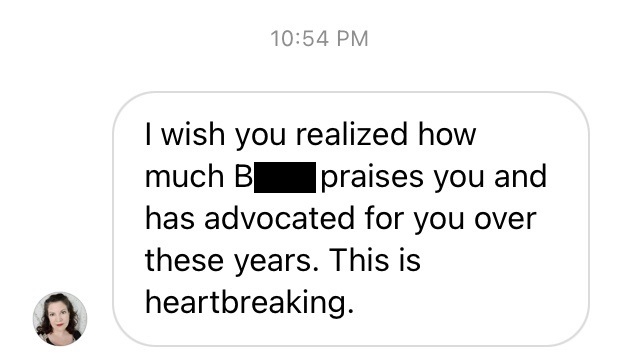
I mean, how fucking dare I, right? How dare I stand up for myself? How dare I assert I’m a human and not someone’s pet? How dare I have anything but gratitude for the power-holders and gatekeepers who allowed me into their world for a time? How dare I mark myself as their equal instead of their subordinate?
The ED’s good behavior doesn’t erase his bad. Defensiveness doesn’t mean your actions are defensible. An apology that goes “I’m sorry, but…” is not an apology. An apology is not accountability. And to be perfectly clear, I don’t owe the ED or anyone who has harmed me a goddamn thing.
After DBW’s piece was published, instead of putting the ED on leave right away while they initiated an investigation, something that would have shown they took DBW’s experience seriously and cared about staff safety, the SPD Board kept the ED in place, allowed him to hire an employee to help with his administrative tasks, allowed him to be a member of the publicity manager hiring committee, and when I submitted a harassment complaint against an employee who sent me inappropriate Slack messages and persistently misgendered me, the Board President allowed the ED to be one of two people (the other being the Board President) who decided if what I experienced was harassment and what the corrective action should be.
My complaint was submitted to the ED (the employee’s direct supervisor) and the Board President on February 2nd, but the ED didn’t even acknowledge receipt of the complaint until February 5th, in an email in which he said they would be in touch about next steps. The next thing I received was an email from the Board President on February 8th titled “Grievance assessment” that contained just four sentences saying that they had determined the misgendering (and not the micro-aggressions) were a violation of SPD policies and that “remedial action” had been taken. The email was four sentences long.
I was never asked any questions. I was never told next steps. The Board President told me he couldn’t say what the remedial action was. The Board President and ED didn’t consult anyone with more knowledge about transgender and non-binary experiences when reviewing my complaint, and they were the sole decision makers, even though the ED was one of the primary people named in DBW’s complaint.
Does that seem, to you, like they take DBW’s experiences seriously, as they’ve claimed in statements?
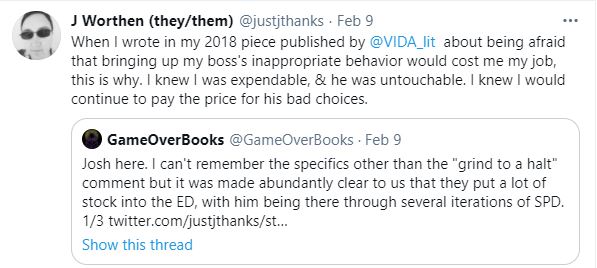
In the Slack messages that were included in the complaint, which the employee sent me after I came to the defense (in a respectful but firm way) of another staff member, the employee told me I needed to build a bridge with the ED and allow healing to occur.
Have you ever been asked to build a bridge with someone who has hurt you and never sincerely apologized or apologized only because of social pressure? Have you ever been told you’re the one that needs to allow healing to occur when the person who’s hurt you has never been held accountable for his actions?
Yeah, it’s not fun. In fact, it’s life-force sucking.
This employee’s actions, on top of the very hard interviews I had to do with the company the Board chose for their workplace assessment (NOT an investigation, as the Board President has emphasized), on top of all the cancer stuff…it was too much. My body has gone through too much this year to ask it to endure SPD’s hostile work climate. It needs time to heal from cancer treatment. So I submitted my letter of resignation and came to terms with the fact that the SPD I hold in my heart is not the SPD that currently exists. And at this point, I don’t believe the power-holders will allow a better SPD to be created.
During the last SPD Board meeting, only the second Board meeting SPD staff have been invited to attend, Board members chatted lightheartedly, slapped each other on the back for doing a good job, and commented on how well SPD’s sales are doing and how productive staff have been, as if nothing has happened, as if DBW never published their piece, as if staff never published their statement affirming that piece. They didn’t recognize any of the staff present by name nor mention their specific contribution to SPD’s sales and financial strength–staff who have been working in a hostile environment with tremendous workloads (because employees who have left haven’t been replaced) and whose wages haven’t increased with their workload. They made no mention of my leaving or the more than 7 years I’ve served SPD. That was probably the most painful meeting I’ve sat through at SPD, and I’ve sat through a lot of painful meetings.
I don’t have anything in place, and I’m going to have to cancel the ACA coverage I just got in January, which is costing me about $500 a month. I might lose everything. And after my last day at SPD, there will be no remaining transgender and nonbinary staff members.
Meanwhile, as the wrong-doers and their enablers cry about cancel culture and play the victim, the ED is still the ED. And it still says the following on the SPD website: “Diversity, inclusion, and a safe working environment for all represent core SPD values.”
There’s so much more that could be said, but those are not my stories to tell.
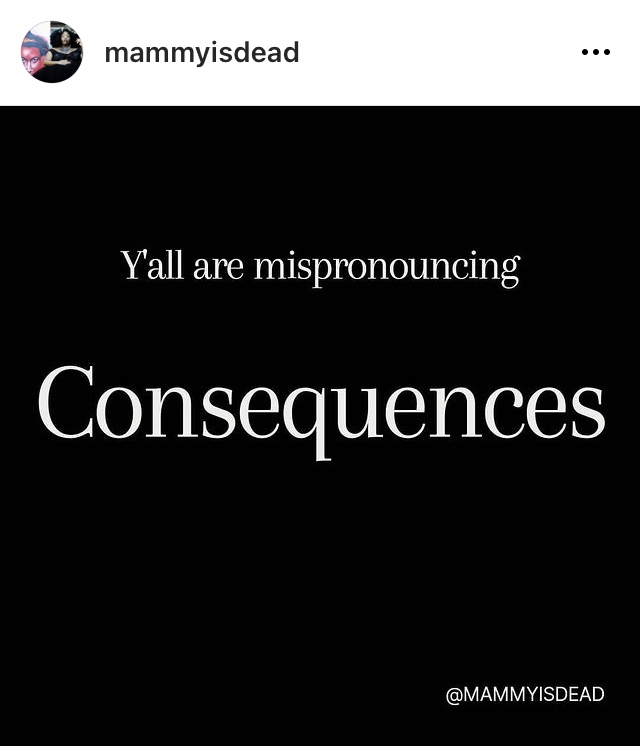
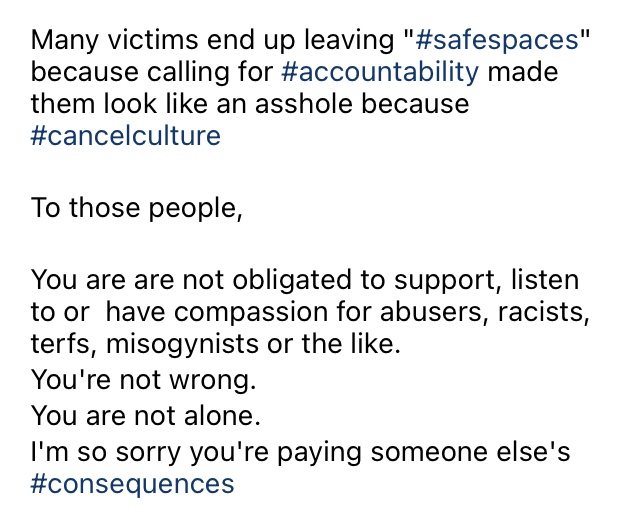
Important Links:
Damaged Book Worker: “I was terrorized out of my job by Small Press Distribution”
J Worthen: “Neither Here nor There, Asexual and Agender in the Literary World
I am so very moved by this. Thank you for posting it.
LikeLiked by 1 person